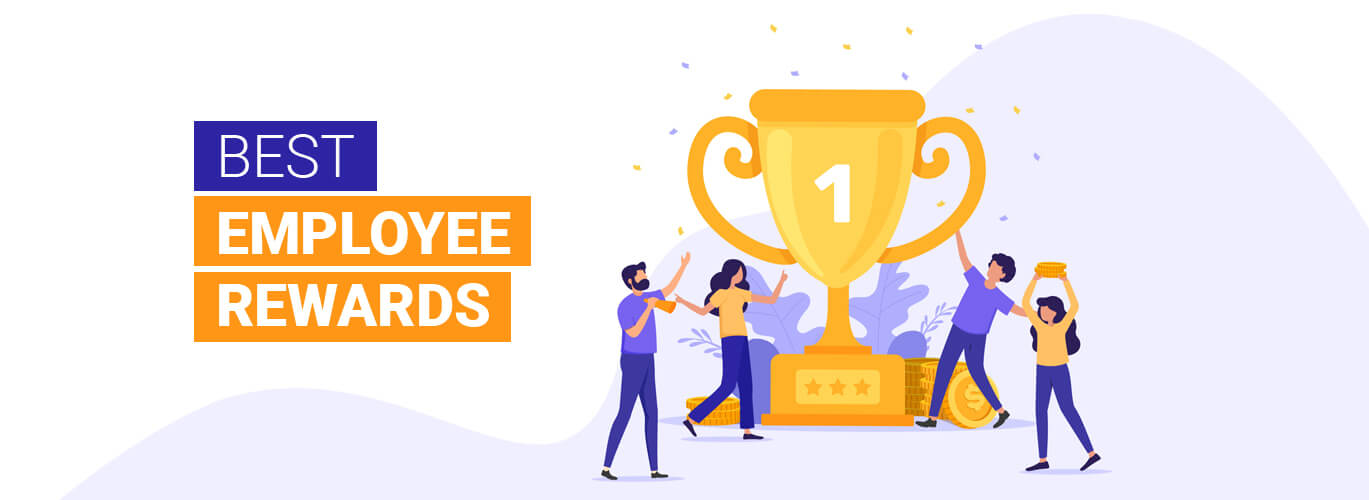Employee rewards may be considered a more actual form of appreciation to your employees who have gained high-quality work or showed outstanding performance levels.
It could be said that rewards are a little more costly to businesses as they usually take the form of profit-sharing and bonuses. This system is known to be just as beneficial as employee recognition as it improves involvement and motivation levels greatly.
The rewards that a business offers the employees will vary depending on the size of your business. Always remain within the means and think of innovative ways to weave rewards into the work environment when appropriate.
Some kinds of reward programs
There are a lot of different types of reward programs focused on both individual and team performance.
Variable Pay
Pay-for-performance or variable pay is a compensation program in which a part of a person’s pay is considered “at risk.” Variable pay can be fixed to the results of a business unit, the performance of the company, an individual’s accomplishments, or any combination of these. It can take many types, including stock options, bonus programs and one-time awards for significant achievements. Some businesses choose to pay their employees less than competitors but try to motivate and reward employees using a variable pay program instead.
Bonuses
Bonuses are a type of reward given to individuals for their accomplishment. Bonuses are often used in sales organisations to motivate salespersons to create additional business or higher profits. They can also be used to identify group achievements. Many businesses have changed from individual bonus programs to one which reward contributions to corporate performance at group, departmental, or company-wide levels.
Small businesses involved in long-term benefits must consider another type of reward, says some experts. Bonuses are usually short-term motivators. They encourage a short-term perspective by rewarding an employee’s performance for the previous year, rather than future-oriented achievements. Furthermore, these programs need to be carefully planned to make sure they are rewarding accomplishments above and beyond an individual or group’s basic functions. Or else, they will have to run the risk of being perceived as entitlements or regular merit pay, instead of a reward for outstanding work. Supporters claim that bonuses are completely legitimate means of rewarding outstanding performance. They also argue that such compensation can actually be an effective tool to enhance future top-level efforts.
Profit Sharing
Profit sharing describes a strategy of developing a pool of monies to be disbursed to employees by taking a stated percentage of a company’s profits. The money given to an employee is generally equal to a percentage of the employee’s salary and is disbursed after a business closes its books for the year. An advantage for the company offering this type of reward is that it can keep fixed costs low.
The concept behind profit sharing is to reward employees for their support to the company’s acquired profit goal. It motivates employees to hang on because it is often structured to reward employees who stay with the company. Most profit sharing programs need an employee to be fixed in the program over a number of years before getting any money. Profit sharing may not properly inspire individuals if not managed well. All receive the share anyway.
Stock Options
Before the department of upper management and large companies, stock options have become a progressively popular method in recent years of rewarding middle management and other employees in both developed companies and start-ups. Employee stock-option programs give employees the right to buy a particular number of company’s shares at a fixed price for a particular period of time (more often around ten years). They are usually approved by a company’s board of directors and accepted by its shareholders. The number of options a company can award to employees is generally equal to a particular percentage of the company’s shares outstanding.
Rewards are among the most powerful things managers can use to become successful. Start motivating your employees and really show them you are grateful for the hard work they are doing to grow your business into heights.






